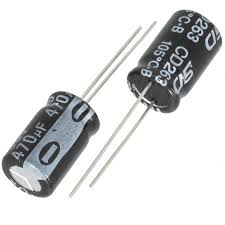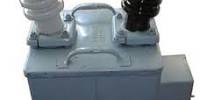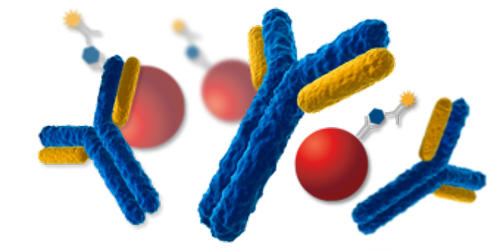An electrolytic capacitor is a type of capacitor that uses an electrolyte as one of its plates to achieve a larger capacitance per unit volume than other types, but with performance disadvantages. Electrolytic capacitors are available with working voltages up to about 500V, although the highest capacitance values are not available at high voltage. Working temperature is commonly 85°C for standard use and 105° for high temperature use, higher temperature units are available, but uncommon. The electrolyte is usually boric acid or sodium borate in aqueous solution, together with various sugars or ethylene glycol which is added to retard evaporation.
Electrolytic Capacitor
















